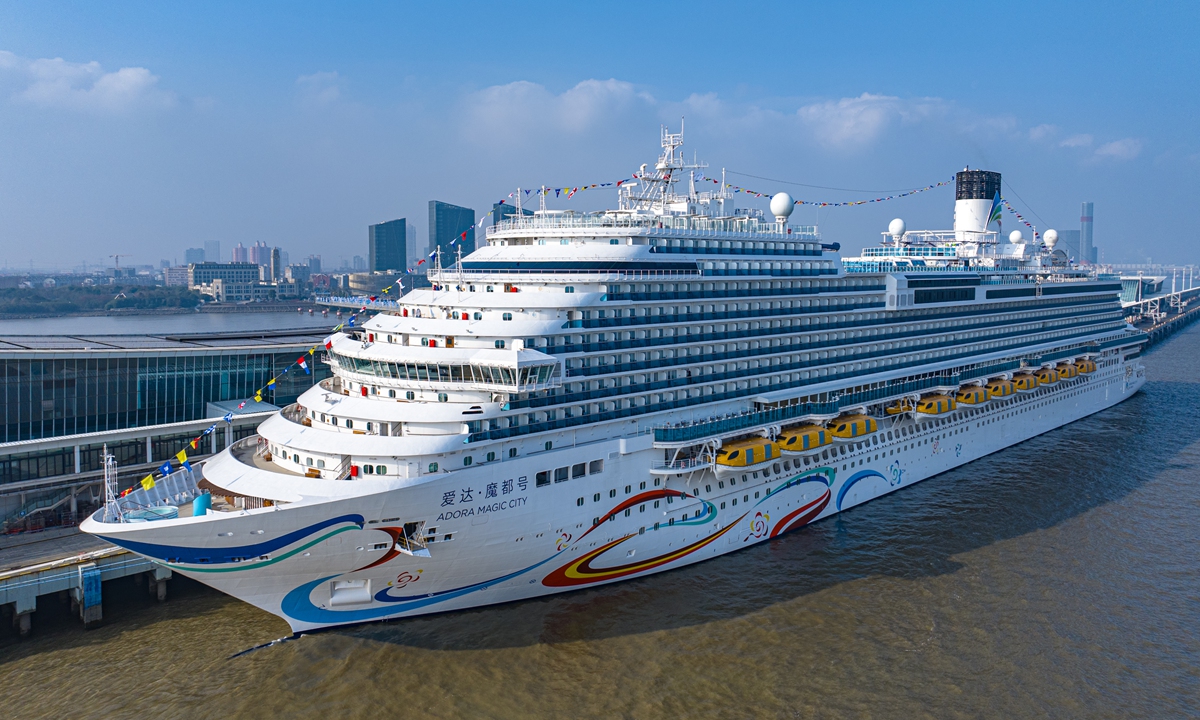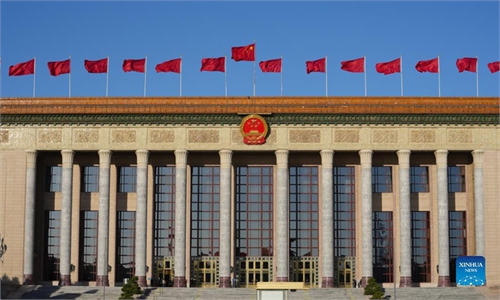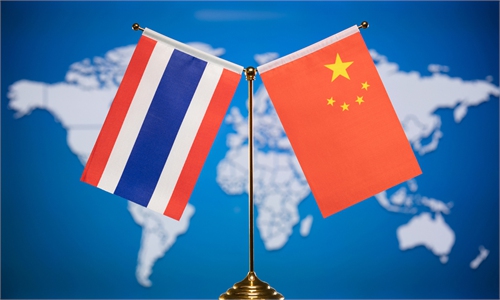New Year holiday cross-border travel surge signals China more connected with world than ever

People in Southwest China's Chongqing Municipality celebrate the New Year Eve on December, 31, 2023. Photo:VCG
The past New Year's Day holidays saw the number of arrivals and departures from China roar back to pre-COVID levels, with foreigners flooding into China to get a glimpse of the ever-changing second biggest economy, and Chinese tourists flocking overseas to celebrate a new year in a different culture. Experts say the rise in border crossings is a result of China's unswerving efforts and determination to connect with the world at a deeper and broader level.Industry insiders believe China's cross-border travel will continue to boom in 2024, with international flights further recovering and more visa optimization policies expected to be rolled out between China and other countries. The surge in trip numbers from and to China also refutes Western media's malicious reports that downplay China's economic performance, as this kind of tourist market vitality would not be seen in a country with economy on decline.
Gui Caldas, a Brazilian who has been in China since mid-December, apart from being impressed by China's advanced technology and fast development, also got a keen sense of Chinese people's enthusiasm.
"People are very much looking forward to communicating with me. They even used their phone to translate Chinese to English (to communicate) so I could have some type of communication. I found Chinese people are very friendly," said Caldas, who is visiting China for the first time.
Sabrina Chan, a Malaysian national, visited Shanghai last week after China rolled out a new visa-free policy for the country. "The Chinese officer at the immigration checkpoint greeted me with a smile and she said to me: 'It's visa-free for Malaysian passport holders! Yay!'"
Chan said she was thrilled to visit China again after three years and felt like the country is undergoing tremendous changes. "I feel very happy and glad that China and Malaysia are now visa free to visit for one year. I will definitely visit China more in this year."
Deep connections
The past New Year's Day holidays from December 30, 2023 to January 1, 2024 witnessed a total of 5.179 million trips made into and out of China, a 4.7-fold increase compared to the 2023 New Year's Day holidays and representing a travel volume return to 2019 levels.
On December 1, 2023, China's new visa-free policy for inbound travelers from France, Germany, Italy, the Netherlands, Spain and Malaysia came into effect, following which about 214,000 inbound trips from those countries were made to China in December 2023, up 28.5 percent compared with November 2023.
Posting the number on social platform, Chinese Foreign Ministry spokesperson Hua Chunying wrote on Saturday: "Welcome more travelers to China to discover our culture, scenery and food with ease and convenience."
It's not only China offering more convenient policies for inbound trips. Other countries, especially those in Southeast Asia, are vying for Chinese tourists. Thai Prime Minister Srettha Thavisin announced last week that Thailand and China will implement a visa exemption policy starting from March, noting that this move is expected to enhance the relationship between the two countries, Reuters reported.
"This will upgrade the relationship between the two countries," Srettha told reporters.
Last month, China and Singapore announced a 30-day visa-free policy that is likely to see a boom in tourism between the two countries. "Both countries will work out the implementation details of the mutual 30-day visa exemption arrangement and implement it in early 2024," the Singapore Ministry of Foreign Affairs said in a statement, Reuters reported.
The Global Times learned from Trip.com that the popular destinations for outbound travel during the New Year's Day holidays included Hong Kong SAR, Japan, Thailand, Macao SAR, South Korea, Malaysia, Singapore, US, Australia, and UK.
The number of cross-border trips made in the past holiday clearly demonstrates that China's effort to further open up to the world has paid off. After shaking off COVID-19 restrictions, people-to-people exchange between China and the rest of the world has deepened and China is connected with the world at a deeper and broader level, Zhang Yiwu, a Peking University professor who is an expert on culture studies, told the Global Times.
Echoing Zhang's view, Jiang Yiyi, deputy head of the School of Leisure Sports and Tourism at Beijing Sport University, told the Global Times that inbound tourism has always been a symbol of our country's opening-up, which is why the New Year's Day holiday number says a great deal about China's determination to further connect with the world. "Thanks to the resumption of international flights and optimization of its border entry policy, such as its new visa-free policy, more international travelers are willing to visit China."

China's first domestically made large cruise ship Adora Magic City starts first commercial voyage from Wusongkou International Cruise Terminal in Shanghai on January 1, 2024. Photo: VCG
The China Tourism Academy predicted in the latest report that the recovery of China's inbound and outbound tourism market will further accelerate in 2024, with the total number of inbound and outbound trips exceeding 264 million and international tourism revenue topping $107 billion.
Many people have scheduled their outbound travel plans for the upcoming winter vacation and Spring Festival holidays. Data from Tuniu Travel website shows that the booking volume for Spring Festival group tours has significantly increased compared to the same period last year, and the booking peak has also come earlier. Currently, the proportion of outbound travel bookings accounts for 34 percent, with popular destinations including Thailand, Singapore, Maldives, Russia, New Zealand, United Arab Emirates, Malaysia, Indonesia, and the Nordic countries, it showed.
The rapid recovery of international flights has boosted the number of outbound trips. By the end of 2023, the number of China's international scheduled passenger flights had risen to 4,782 flights per week, around 62.8 percent of the pre-pandemic level, the Civil Aviation Administration of China said on Monday.
Specifically, the proportion of those flights operated by Chinese airlines has recovered to 73.5 percent of the pre-pandemic level, compared with 48.1 percent by overseas carriers.

Staff members welcome Chinese tourists at Suvarnabhumi airport in Bangkok, Thailand, Sept. 25, 2023. Thailand extended a warm welcome to the first batch of visa-exempt flights from China on Monday, marking the launch of the nation's fresh initiative to reinvigorate its Chinese tourist market. Photo: Xinhua
Looking at specific countries, scheduled international passenger flights now cover 67 countries and regions, seven fewer than before the pandemic. Flight volume to 25 countries including the UK has exceeded pre-pandemic levels. In addition, compared with before the pandemic, there are six new countries including Kuwait, Serbia, Tanzania, Luxembourg, Papua New Guinea, and Nigeria that now have services from China.Zhang said the bustling tourism market and frequent people-to-people exchange serve as a good sign for a more prosperous 2024. He noted that over the year, many Western media have spared no efforts to downplay China's economic performance, picturing it as a country whose economy is on decline.
"But the New Year's Day holiday vibe refutes those reckless reports. Why would anyone visit a country that is losing vitality? Would anyone in a country mired in economic problems seek to travel so much and would so many countries vie for Chinese tourists? And how is it possible to have such a vibrant moment of celebrating a new year if the social mood is low, negative, and depressed?" said Zhang.




